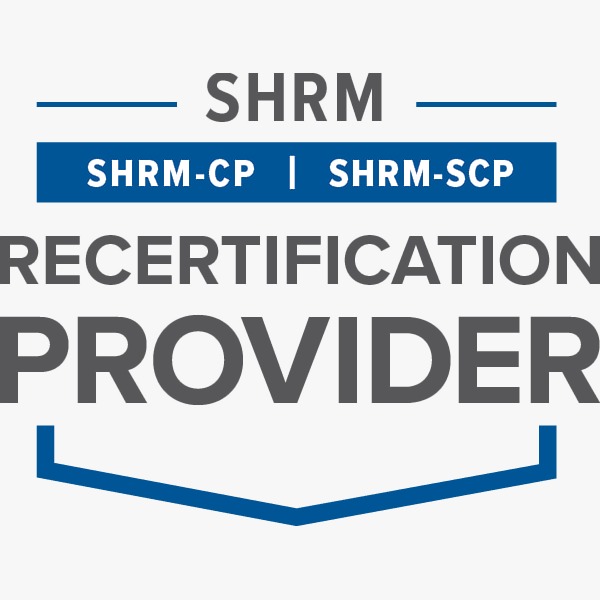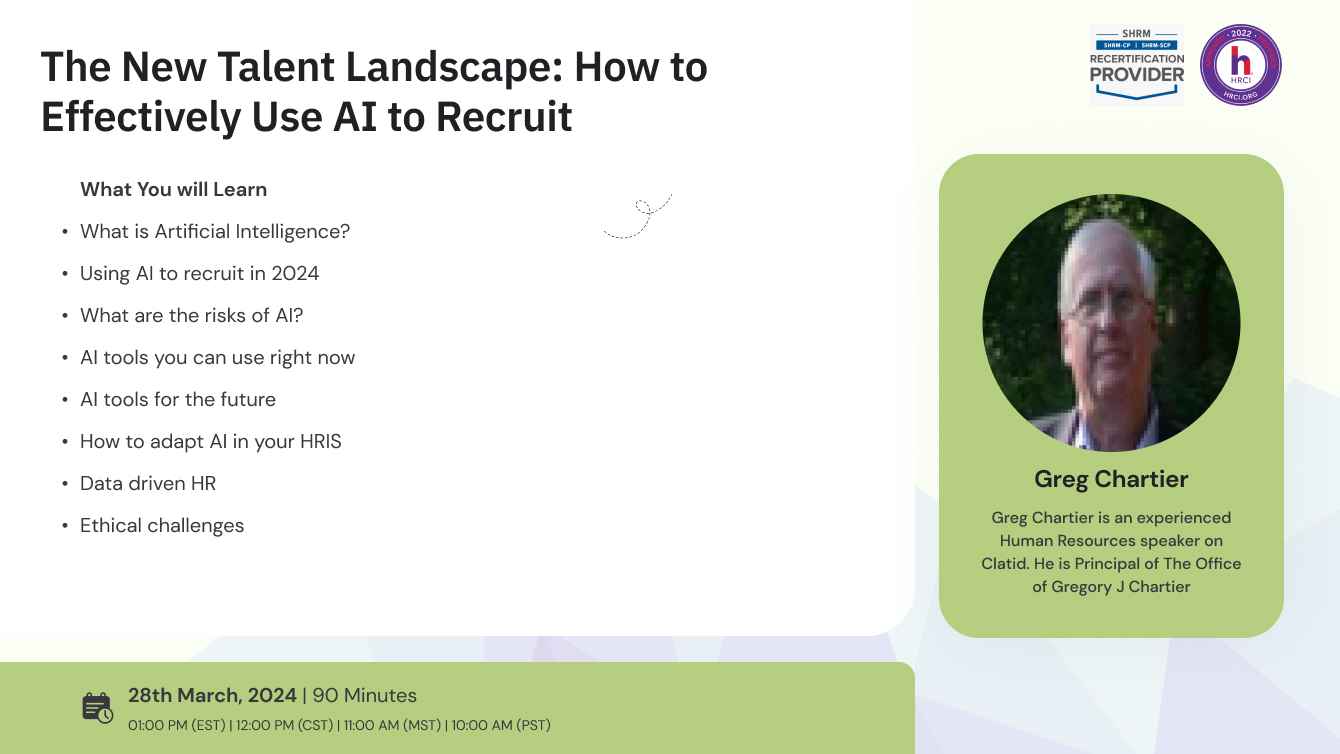Welcome To Biggest Online compliance Platform
Human Resource & Payroll
Filling an open position at a company can be a difficult, time-consuming experience for recruiters. It could take several weeks, or even months, for hiring managers to sort through applications and set up interviews. It is particularly difficult for smaller and mid-size firms.
In a survey by Tidio, a customer-service platform, 67% of human-resources professionals said that they see the value in artificial-intelligence tools. In fact, HR has already been using AI tools and, while it's clear the hiring process is in a major transition, what does this transition look like and where will we end up.
HR is already using AI tools at various stages of the recruiting process, from reviewing resumes and filtering them through our applicant tracking system or using it to short list candidates.
At the same time, HR is dealing with the ethical challenges of using AI tools in the recruiting process, from inherent bias in the system to the risks of eliminating good candidates through a lack of planning.
Join us to examine some of the tools of AI, how AI works to simplify the recruiting process and how HR can manage the risks associated with artificial intelligence.
- What is Artificial Intelligence?
- Using AI to recruit in 2024
- What are the risks of AI?
- AI tools you can use right now
- AI tools for the future
- How to adapt AI in your HRIS
- Data driven HR
- Ethical challenges
It would take weeks to gather and analyze the same quantity of data manually that AI processes can accomplish in seconds. In today’s fast-moving business environment, speed is critical for the following reasons:
- Empowering faster decisions at the right times to generate business opportunities
- Getting accurate information quickly
- Facilitating pattern recognition to spot trends
- Accelerating all company processes
- Learning from past mistakes and successes
Artificial intelligence comes in narrow and strong levels, but most AI systems can be classified in three categories: voice recognition, bots and algorithms. There are actually many kinds of artificial intelligence that can range from calculating auto immune system performance to automating physical systems, but the three major areas that concern HR are voice recognition, robot automation and algorithms.
Any organization is only as good as its people, and every business—big or small, local or global—is beginning to appreciate this reality, especially after the recent surge in post-pandemic employee turnovers.
The trend of employees leaving their jobs, coupled with the digital disruption of the workforce, has forced organizations not equipped with the tools and resources needed to fulfill their HR and recruitment needs to turn to technology for help.
According to Fortune Business Insights, the global human resource technology market is projected to grow from $24.04 billion in 2021 to $35.68 billion in 2028, and companies are likely to prioritize investments in AI to optimize business processes and reduce costs.
How HR adapt to AI tools and how they will use it is the focus of this training.
First and foremost, AI can add immediate value to the HR and recruitment processes by predicting talent needs within a company or a specific department something we do not tend to think of when considering AI.
Once the talent needs have been identified, AI can help source potential candidates through AI-generated custom advertisements that help target the right candidate pools from across the web. Besides adding new levels of efficiency to the search process, AI systems also do a much better job of tracking candidates, unlike traditional manual processes.
AI can also aid in the hiring process through automated application tracking tools and resume scoring and ranking. The technology can also significantly reduce a recruiter's time in reviewing nontechnical aspects of candidates, such as communication skills, through the use of virtual reality-based dialogue systems or virtual recruiters.
- Human Resource Managers
- HR Leaders at all levels
- Operational managers who have HR responsibilities
- Senior level Human Resource leaders
- HR professionals
- AI enthusiasts

Greg Chartier is an experienced Human Resources speaker on Clatid. He is Principal of The Office of Gregory J Chartier, and is a well-known management consultant, educator and speaker and author of the recently published What Law Did You Break Today? His practice is based on the Business Partner Model of Human Resources, which emphasizes on outsourcing, the use of technology to gain efficiencies and the improvement of managerial skills.
Greg is a thought-provoking professional speaker and his wisdom and insights into management and leadership make him an electrifying speaker and seminar leader. His seminars are customized to reinforce company mission, vision, values and culture and the content is practical for team leaders, managers, supervisors and executives. His philosophy is simple: management is a skill and you can be a better manager by developing your skills.
He has a bachelor's Degree from The Citadel, the Military College of South Carolina, an MBA from Rensselaer Polytechnic Institute and his Ph.D. in Human Resources Management from Madison University. Greg is certified by the Society for Human Resources Management (SHRM) as a Senior Professional in Human Resources (SCP) and as both a Senior Professional and a Global Professional in Human Resources (SPHR and GPHR) by HRCI, the Human Resource Certification Institute.
He is a former Board Member of the Business Council of Westchester, where he was the Chair of the Human Resources Council and a member of the Executive Committee. Greg is a national member of SHRM and a local SHRM chapter, the Westchester Human Resources Management Association. He was also a member of the Board of the Child Care Council of Westchester.
Greg is involved in the Certification Program for Human Resources Management at Pace University, which includes the preparatory program for the Human Resources Professional Examinations and the Essentials in Human Resources Management Program, as well as the Continuing Education Programs including HRCI and SHRM recertification. He is also a member of the faculty of the New York Medical College in Valhalla, NY.

SHRM -
PearlEducation is recognized by SHRM to offer Professional Development Credits (PDCs) for the SHRM-CPSM or SHRM-SCPSM. This program is valid for 1.5 PDCs for the SHRM-CPSM or SHRM-SCPSM. For more information about certification or recertification, please visit - portal.shrm.org.

HRCI -
This webinar has been approved for 1.5 HR (General) re-certification credit hours toward California, GPHR, HRBP, HRMP, PHR, and SPHR recertification through the HR Certification Institute.
The use of this seal is not an endorsement by the HR Certification Institute of the quality of the activity. It means that this activity has met the HR Certification Institute’s criteria to be pre-approved for re-certification credit.
Sign up now on pearlacademy.net. Visit pearlacademy.net/webinar to discover a wide range of webinars from industry specialists. Tick on either ‘live webinar’ or ‘on-demand’, and simply click on ‘buy now’ to get enrolled.
You can refer Pearl Education to anyone in your social circle. Explore your industry with your colleagues by getting them signed up on Pearl Education today!
Go for the topic of your keen interest on pearlacademy.net. Tick on ‘live webinar’ and get enrolled! Easy registration, transparent transaction.
You can request for an on-demand webinar that records the live webinar for you. After the webinar ends, you will have full access to the webinar’s recording. You can also explore Pearl Education offline to order your webinar DVDs, flash drives and transcripts.
If you can’t attend the live webinar, simply go for the ‘on-demand webinar’ for the same price! Now, the live webinar recording will be saved in a cloud storage for you to access anytime from anywhere.
Pearl Education offers both hard and soft copies of the webinars. It contains all the highlights as well as comprehensive descriptions of the webinar, so you never miss out a single detail.
After attending the live webinar, your certificate will be emailed to you. You can download it and add more charm to your professional score.
At the end of each webinar, you have the opportunity to interact with your industry experts, where you will get answers to all your queries.
Can’t attend the live webinar? Pearl Education has got you covered! You can always switch to the on-demand webinar from your portal. You can also get your hands on the webinar’s DVD/flash drive and transcript. So order them now!
Pearl Education brings a variety of options for offline learning. Order your DVDs, flash drives or transcripts now to have a lifetime access to Pearl Education webinars. You can also go for on-demand recordings. Download and watch it anytime from anywhere in the world!
